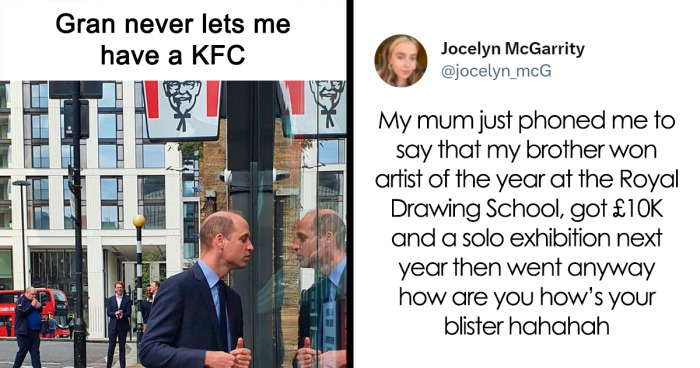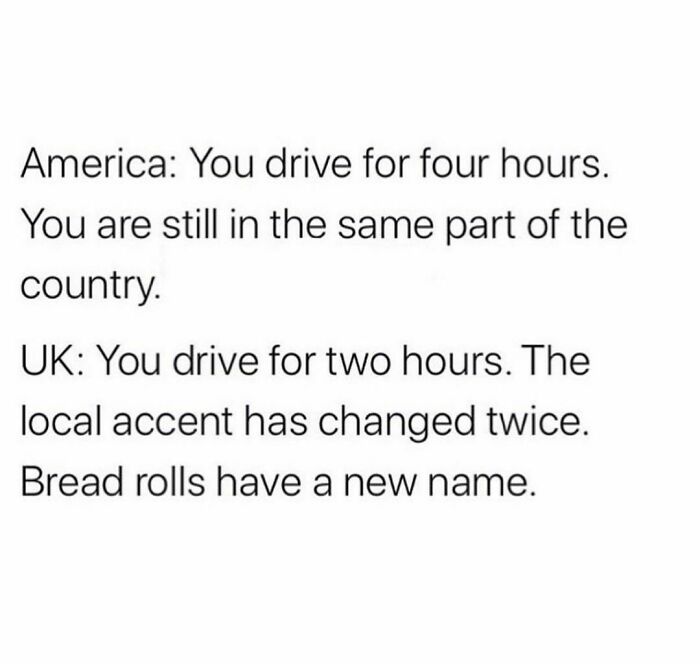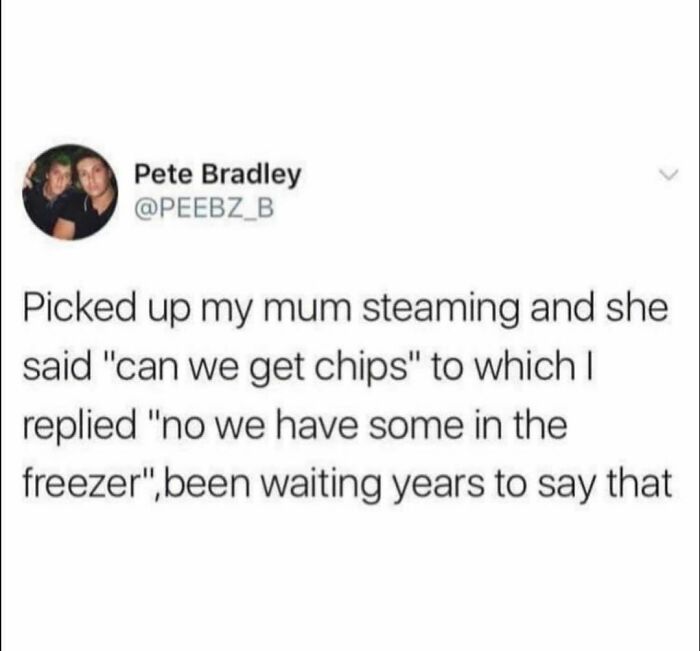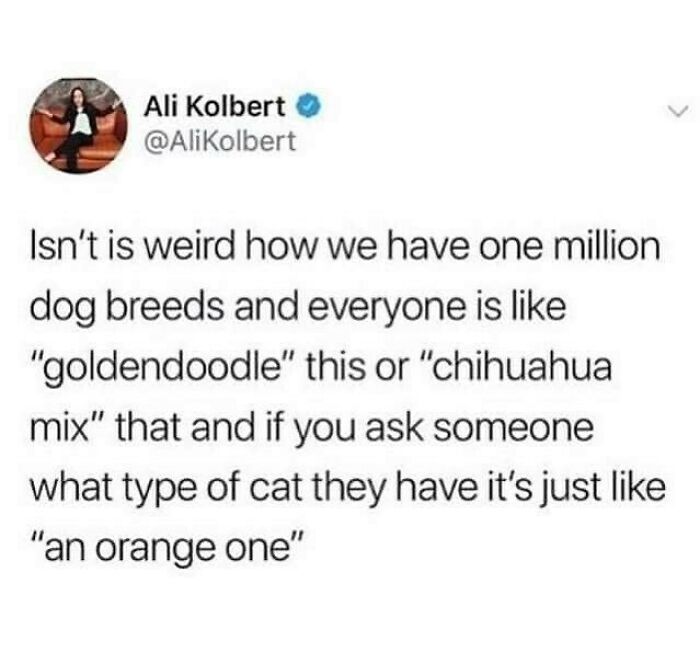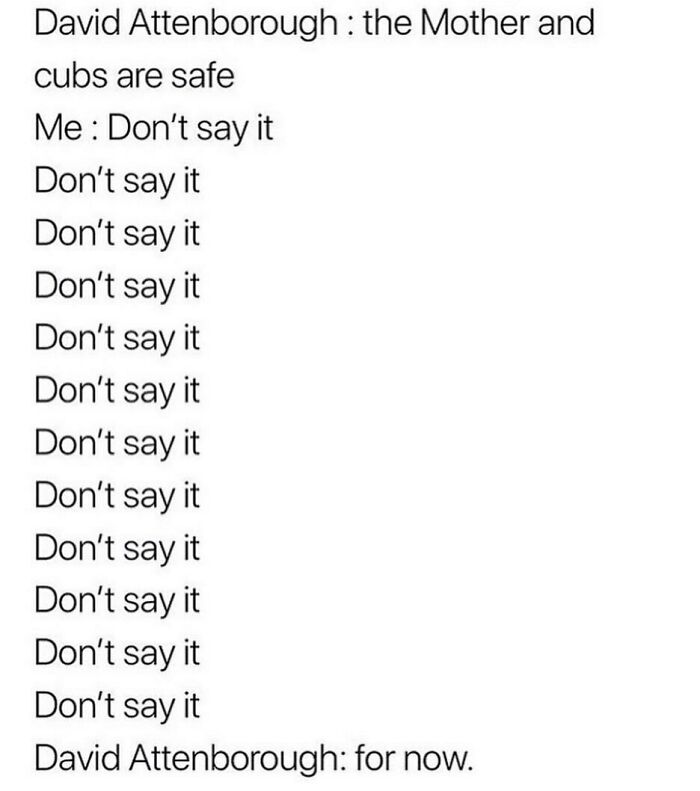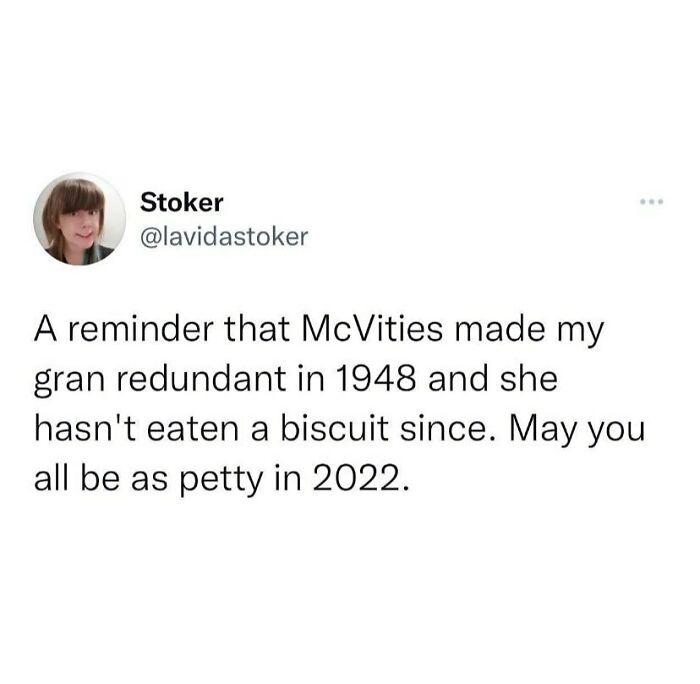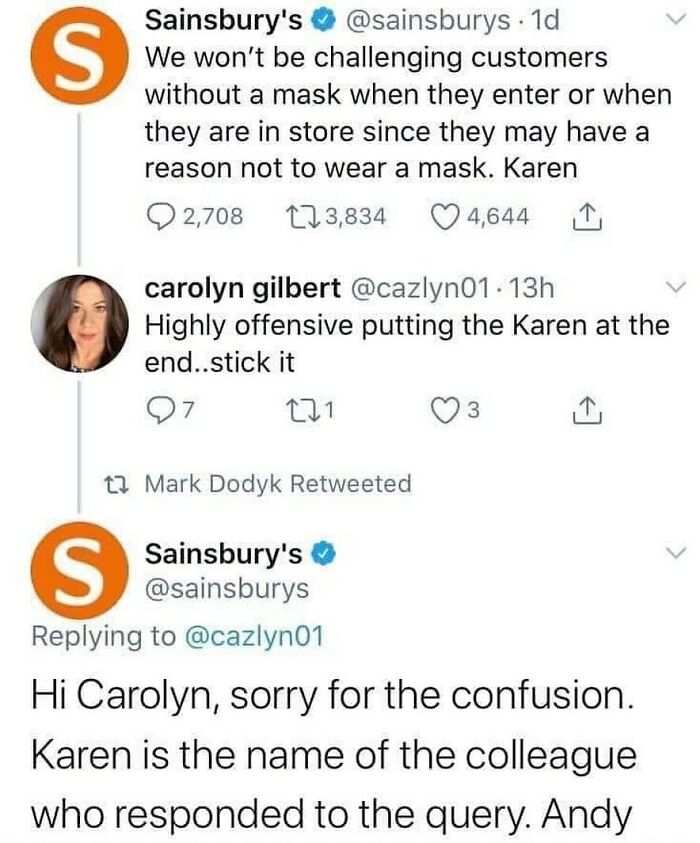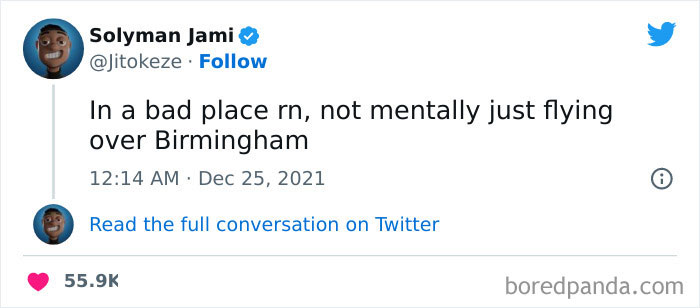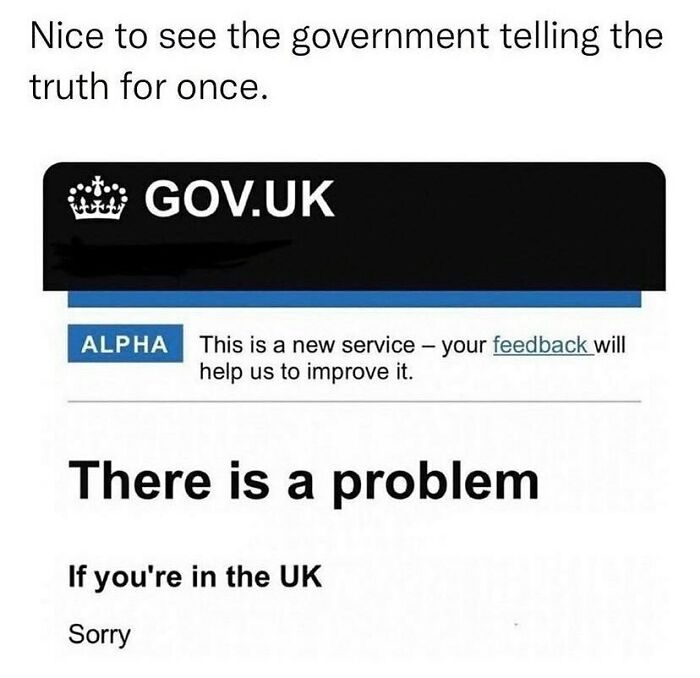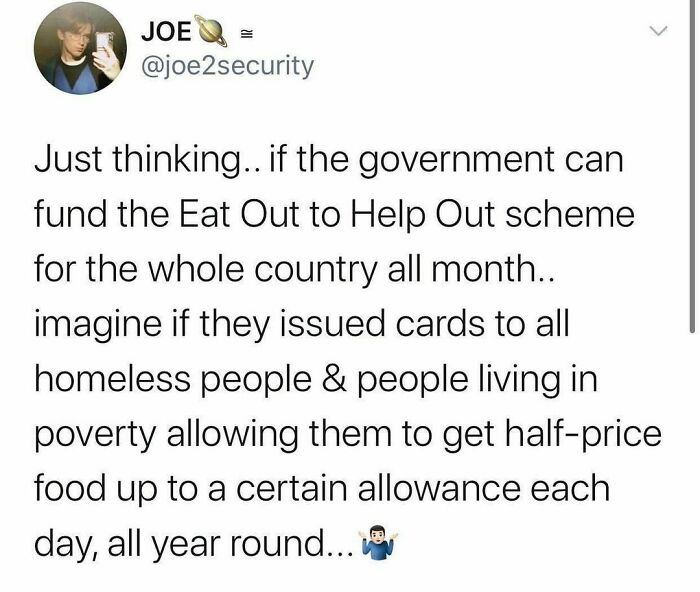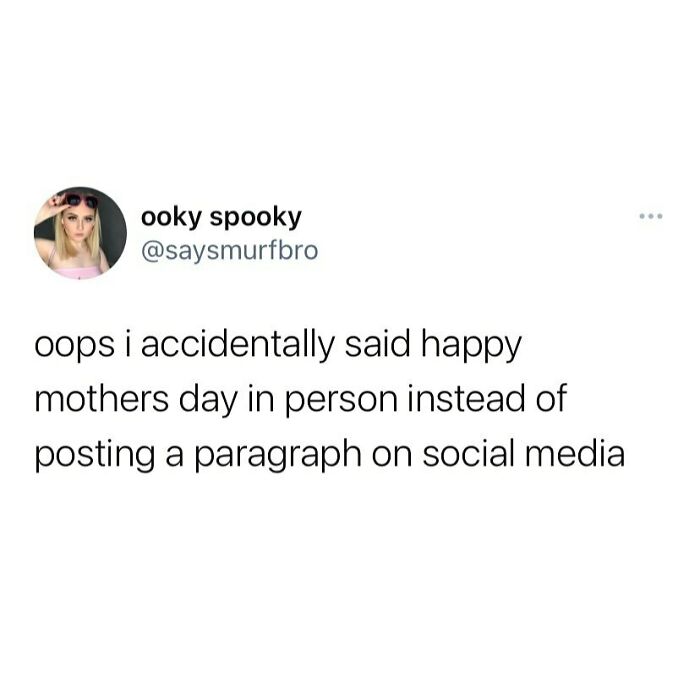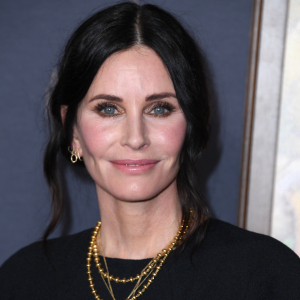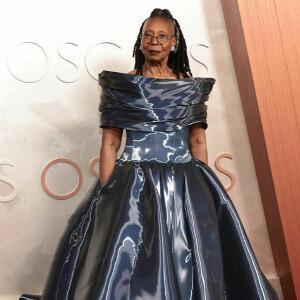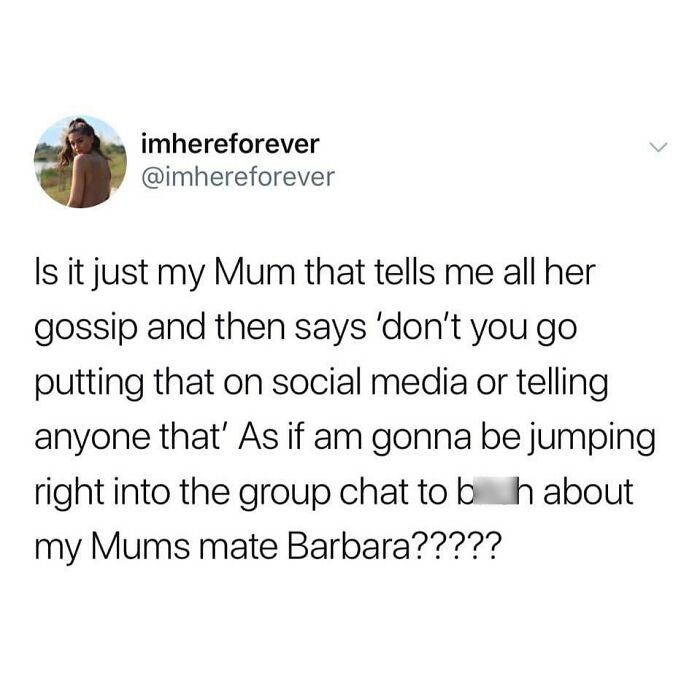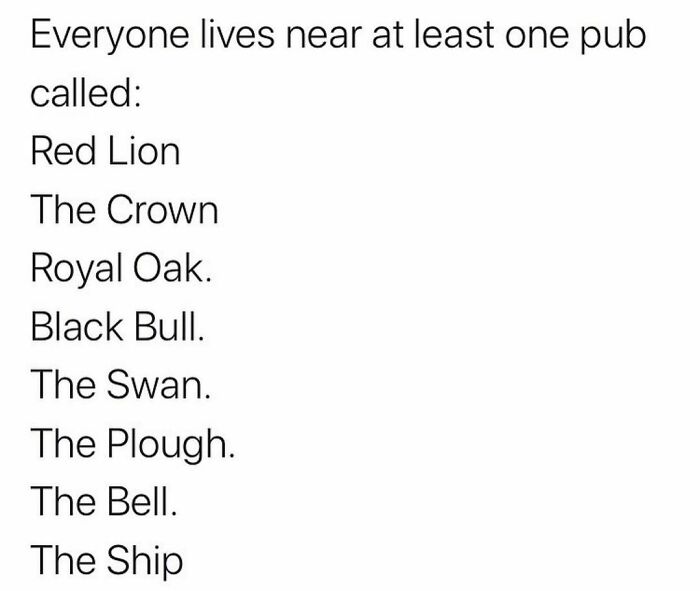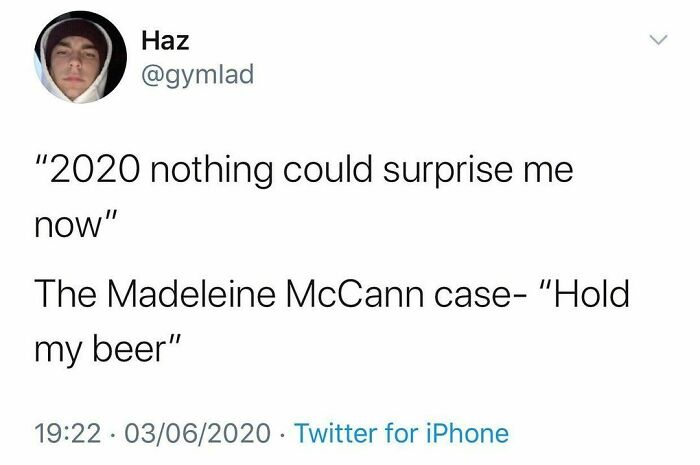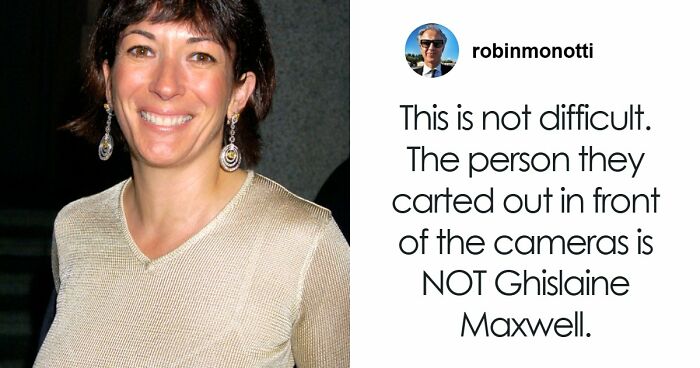The UK has its own breed of humor and what gets a Brit laughing may leave outsiders scratching their heads.
Heavy on self-deprecation, almost undetectable sarcasm, and constant deadpan delivery, it can feel like a totally different language.
But fear not, we’ve put together a new piece about the social media magazine 'British Memes' to help you understand (and use!) their jokes just as effectively as they do.
So continue scrolling and happy learning!
More info: Facebook | Instagram | Twitter
This post may include affiliate links.
I see the problem, you were far too kind about it, those who delight in irritating our cat lords must not live
From Shakespeare’s comedies to Billy Connolly’s command of an audience, Gavin & Stacey’s taste of Welsh whimsy to Derry Girls’ earthy look at life in the 1990s, humor has been central to the history of storytelling across the UK for a very long time.
But if you ask an academic to come up with a description for British humor, they will most likely run into some trouble.
Dr. Ian Wilkie, a lecturer in performance at the University of Salford, said: “Having taught younger American students, they take the British sense of humor to be Monty Python, by which they mean a sort-of slightly erring towards the surreal, very iconoclastic in terms of attacking the big targets, very silly.”
Thank you! I hate those awards, because I missed one day off of school before, and despite being told I'm one of the best students, like in the top five, I got nothing. It unfair and stupid Edit: I got a prize for attendance today 🙃
However, Wilkie said that, while those traits can become shorthand for ‘the British sense of humor’, he doesn’t think “that cuts the mustard.”
Dr. Wilkie highlighted that there are already differences in popular humor in the four home nations. It diversifies even more between the major cities, making it difficult to pinpoint a blanket ‘British’ humor.
I grew up in England and now live in Australia. I can confirm both these comments
One example is the Scottish brash-with-a-twinkle style of Billy Connolly or the more gentle approach of his compatriot Susan Calman. “Scottish people like witty jokes, there is a lot of respect for learning and that it likes quite hard-hitting jokes, ones of mockery,” Wilkie explained.
While he noted there are similarities between Glaswegian humor and that found in other port cities, such as Liverpool, that Scottish style might not necessarily translate into a Welsh sense of humor or a broader English one.
Attending a comedy night, with many different acts, would show how difficult it is to categorize humour along geographical lines.humor
“You may laugh at different aspects of their schtick, but it would then be difficult to say, ‘well, there’s a British sense of humour’ because of the disparate kind of approaches and world views coming across.”
Another element worth considering is how much the humor of other countries has influenced British comedy.
If you’ve sat and enjoyed the exaggerated characters in Fawlty Towers, the characters and scrapes they find themselves in reflect the sketches of the Commedia dell’arte, a form of theatre from 16th Century Italy.
Among other elements, it involved a series of recognizable characters from all aspects of society engaged in witty dialogue.
Surrealism, long considered a staple of British humor was, as Dr. Wilkie describes it, performed by: “Dadaists from countries that we may choose not to think of as particularly funny, such as Germany."
“They were doing surrealism to the nth degree, quite deliberately as a performative art, in the early part of the 20th Century. I think it’s something we like to appropriate in a way and imagine that we’re the custodians of it, but it’s not culturally specific at all.”
For a second I forgot bird had a different meaning in this context and was like "wow that's oddly specific..."
With Monty Python held up as a good example of leftfield humor from the UK, the Carry On… series of films suggests a national affection for a less sophisticated bawdiness loaded with double entendres.
While they did enjoy popularity outside the country (Carry On Nurse ran in Los Angeles for more than two-and-a-half years on its initial release), Dr. Humor Wilkie doesn’t see the humor contained within the 30 titles of the franchise as something that defines a nation.
“Carry On… kind of made fun of itself in its day, it was already slightly self-consciously old-fashioned and seaside postcard, but people could enjoy it because they could say, all bets are off really, we’re going to see something that’s sexist, end of the pier and a bit silly and that was fine,“ Dr. Wilkie explained.
Hate those hypocrites who say work harder: your college education was paid for even when you were failing, your job was nepotism, and your wealth was inherited.
At least ALL of them would come home without getting shot at.
It’s these different styles and presentations of comedy by British performers that. Dr. Wilkie believes make it impossible for an academic to point, with confidence, at various elements and state categorically that they alone make up the nation’s famed sense of humor.
Red telephone boxes look so cool and posh and aesthetic and then you have the one on the right
There's a really nice frozen custard place about 45 min. away from my parents. They'd make the trip once a month or so, and bring the dog. He got a spoonful of everyone's custard. Once they went, and it was cold, rainy, and crowded. They decided to go to the Baskin Robbins across the street. They got their ice cream, and a paper bowl so they could share with the dog. He wouldn't eat it. I guess he decided that if he was going that far, it had to be the custard or nothing.
“No, I wouldn’t say there is a British sense of humor,” he concluded. “I think the best you can hope for is some big, beacon terms (eg. sarcasm, understatement, self-deprecation), that maybe, over a fair amount of time, might hold water."
“Comedy and humor have always been so open to counter-examples that you can never really pin anything down. It’s like trying to nail jelly to a wall.”
However, if you'd like to see more 'British Memes,' fire up our first publication on this fun little project.
Same in the US: rich people find loopholes to get out of paying taxes, so the taxes on the workers get increased.
I actually feel it's a win if you haven't set foot in Dubai. Seems like a soulless place
Everyone was enjoying the Donner Kebabs at the Christmas Party. Then they ran out. So they started on the Blitzen Kebabs.
They have use of full lanes in my city, whether one or a gaggle of them. Tons of cyclists around here. HATE getting behind them but good on you for exercising. Now get out of my way. I have snacks at home.
Is this like East Coast/West Coast snobbery of middle America? I looked up why people hate Birmingham. Most common answer was that it was riddled with crime, but the crime rate (63) is only marginally higher than London (54.9). (Actually, it was quite odd how similar crime rates are across UK. The worst had a crime rate only twice as high as the best. Some American cities have crime rates several times higher than others: New Orleans, Detroit and St. Louis have murder rates more than 10 times higher than New York's.)
The first person to win Deal or No Deal, her long term boyfriend left her a couple of weeks before. Not the same scale, but it did give us a nice warm feeling
oh you poor intellectually deprived dears, why would the government waste valuable tracking devices on you?
Well to be fair, if you're on enough *illegal medicine* it can happen again
Twist: It wasn't part of a 'Meal deal', he was actually asking you out but saved himself by using this tactic :)
The "Sorry" at the end is the epitome of being British. Someone walks into you, you say sorry xD
Not any more. Life is short, have the starter. Especially if it's scallops
Oh yes and it's always when I need him to NOT take his sweet time to do it
President Clinton wishes he had come up with this idea. The Eat Out to Help Out scheme, I mean.
please tell me cba means can’t be arsed, because I’m going to use that from now on
My old landlord used to do this thinking it wouldn't count and formal communications when I sued him for 3x my deposit hahahahaha
I laugh every time I get into the turn lane for my street, which looks like I'm sneaking in early for the turn lane for the light just past our street. Car after car starts following me to jump ahead, too. Then they are stuck behind me, where as if they drove passed me and got into the lane when they should have, would already be through the light. 🤣
I tried balancing an opened water bottle on my forehead with the same results.
Not likely. In Australia, they'll advertise e.g. table saws for $99.00, and you go there at opening time to get one and it turns out that maybe 4 were allocated to the three Aldi stores in your town, and somehow (mysteriously) they've all already been sold.
So, my 23f missed Mother's Day this year, but visited a couple of days ago. I showed her the poems her little sisters gave me hanging on the wall (unframed). Then showed her I still had the framed one she gave me at the same age. She started crying and I was like "yeah, your Mom still loves you!" She replies "No, and I only say this because they are asleep - I'M STILL THE FAVORITE!" 🤣
I'm wondering if anyone, well anywhere, has experienced the likes of the Colin & Cuthbert scandal. I mean do our American friends know the feeling to pick a side on such a raw topic? Do our passionate European neighbours have enough passion to enter this arena? Have our Asian fellows ever felt on the brink of anarchy over such a sensitive topic?
Hah, had lovely sun for weeks and my garden is suffering. No rain even forecast for the south east. Hosepipe ban looming.
That's not Barbara whose husband ran off with a footballer is it? I mean I can understand why she got into yogurt after that
Amazing how many adverts have "maxi" on them. RIP Maxi, greyhound of distinction
Ok but have you heard his podcast " help I sexted my boss " I'm pushing myself every episode
I used to work for the company that set up the clubcard scheme when it was just a guy and his wife that set it up out of their back bedroom, and was later bought outright by Tesco... my advice don't use one, that amount of data on you isn't worth an extra 7p off a can of beans every month. They analyse and sell ALL your shopping habits to EVERYONE willing to pay for it, one day they'll have coca cola in selling them it, the next pepsi will be in buying the same data on you. Stopped buying codoms this month? Next month your offers will probably be about nappies or some other baby stuff. All sold to you as doing you a favour, but in reality exploiting the f**k out of you.
If you have parents that are good for you to stay with, bless you!! Do it!!
Scampi Fries. Great if you're eating them! Shocking if you're smelling someone who's eaten them!
I still love a pack of Scampi Fries. tend to have them with a cider in the sunshine now. anyone had their rather awfully named "cheese flavoured bites" they're actually really nice too. nicer than the bacon ones they do, but you rarely see them.
Scampi fries? Not so sure about that one. Kinda glad that flavor didn't cross the pond.
I do want to try a J20 though. J-Twenty am I right? 😉
Load More Replies...Has anyone else’s pollen allergies been acting up more than usual?
No, because I stop for a hot second and remember how much I hate doing laundry.
I take it this is about Madeleine McCann and not the precocious French schoolgirl of the cartoon. 😜 I was so confused for a second.
Could have been worse - imagine being german and taking part in the contest....
And here we are only halfway through 2020v3. Only six more iterations left.
Finally a thread where the Americans don't understand half of what is being said. I get fed up of being the one saying "I don't know what this means" or "I don't know who that is".
Is this a joke? Because I am from Argentina and I understood all of them...
Load More Replies...I'm still laughing at the 'Birmingham' one. These are all so true #BritishLife
Finally a thread where the Americans don't understand half of what is being said. I get fed up of being the one saying "I don't know what this means" or "I don't know who that is".
Is this a joke? Because I am from Argentina and I understood all of them...
Load More Replies...I'm still laughing at the 'Birmingham' one. These are all so true #BritishLife

 Dark Mode
Dark Mode 

 No fees, cancel anytime
No fees, cancel anytime 


